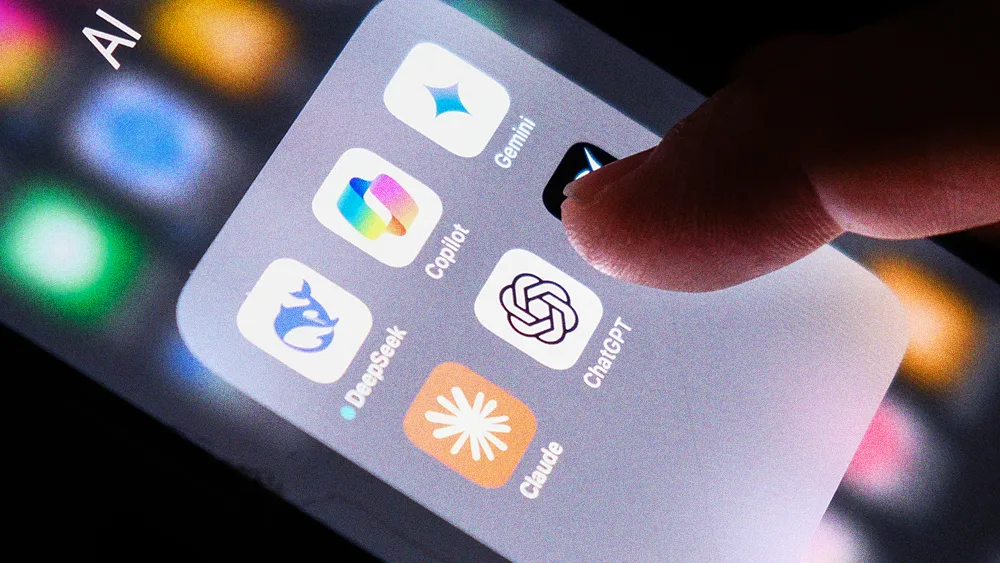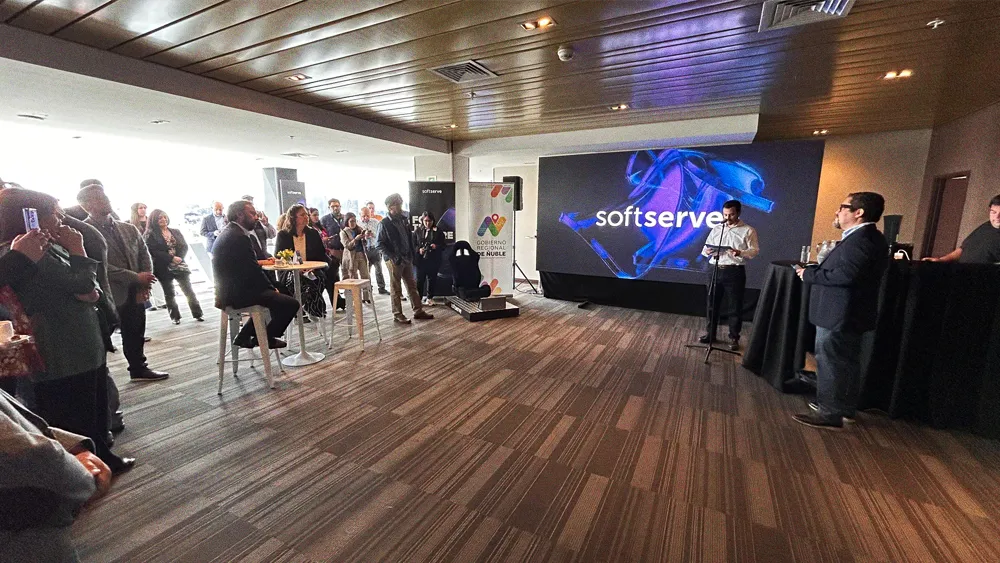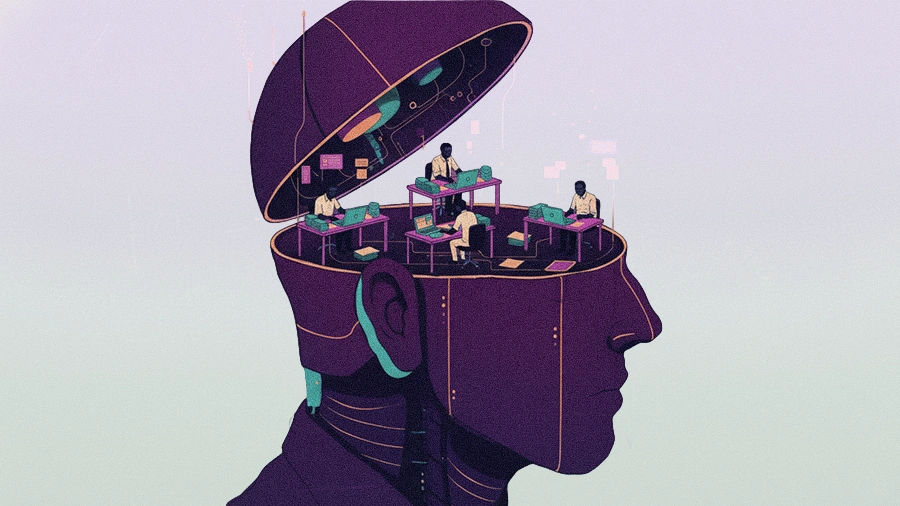How some HR leaders are paradoxically leaning into AI to facilitate culture and connection

Key Points
AI has the potential to enhance HR by reducing low-value tasks, enabling a greater focus on person-to-person interactions.
Elizabeth Jenswold highlights the importance of using AI to free HR for activities that build culture and solve problems.
Addressing employee fears about AI, HR should focus on upskilling and adapting to future job changes.
HR business partners still spend too much time on transactional tasks, which can be frustrating. Instead of receiving ready-made insights, they are often pulling raw data or manually filling out talent management templates. If we could eliminate those inefficiencies, they’d be free to focus more on what truly matters—the human side of the business.

Elizabeth Jenswold
Global HR Executive
Elizabeth Jenswold
In the rush to automate HR, the growing fear is that technology will strip the humanity from a deeply human-centric field. But what if the opposite were true? What if AI, by eliminating transactional drudgery, could liberate HR professionals to focus more—not less—on the person-to-person connections that truly matter?
For Elizabeth Jenswold, a global HR executive who has led transformation at industry giants like CBRE and JPMorgan Chase, the real promise of AI is not about efficiency, but liberation.
Transactional trap: The problem, she says, is that even strategic HR partners are buried in low-value work. “HR business partners still spend too much time on transactional tasks, which can be frustrating,” Jenswold says. “Instead of receiving ready-made insights, they are often pulling raw data or manually filling out talent management templates. If we could eliminate those inefficiencies, they’d be free to focus more on what truly matters—the human side of the business.”
Simply listening: That freed-up time, she argues, can be reinvested in high-impact, uniquely human activities that build culture and solve real problems. She provides an example of what this looks like in practice: “It looks like listening to groups of employees and creating action plans based on what they’re hearing, or spending time job shadowing junior roles to understand their pain points.” The goal is to come up with “strategies around how to improve the workforce across the organization. You could go on and on with where HR could add more value if they better understood the jobs in the business,” Jenswold explains.
An irreplaceable dialogue: This work, she stresses, is something technology simply cannot replicate. “And you can’t do that with AI,” Jenswold states. “The dialogue becomes what’s really important.”
The strategic parking lot: That freedom creates its own challenge for HR professionals: prioritization. “You always have two voices in your head as an HR business partner. You’ve got your HR team voice and then you also have the business strategy and goals,” Jenswold says. “In a perfect world, those two agendas line up.” When they don’t, she advises a disciplined approach. “The business will always generate great ideas about what HR could be doing,” she says. “But if those ideas are not aligned to the to the strategic plan, they belong in a parking lot until another time.
Shepherding through fear: As HR’s impact expands, so does its responsibility to guide employees through the uncertainty AI brings. “Many worry that AI will take away their opportunities,” Jenswold notes. “But while it may change the roles people have today, it will also open the door to new and exciting work. We will see careers that didn’t exist before and that offer even greater potential for growth and impact.”
HR has the opportunity to to reimagine the employee experience and lead the way in preparing people for the workplace of tomorrow. “By investing in upskilling now, we are not just preparing for change,” says Jensworld. “We are shaping a future where people thrive alongside technology and innovation.”
The business will always generate great ideas about what HR could be doing. But if those ideas are not aligned to the to the strategic plan, they belong in a parking lot until another time.

Elizabeth Jenswold
Global HR Executive
Elizabeth Jenswold
The business will always generate great ideas about what HR could be doing. But if those ideas are not aligned to the to the strategic plan, they belong in a parking lot until another time.

Elizabeth Jenswold
Global HR Executive
Elizabeth Jenswold
Related articles
TL;DR
AI has the potential to enhance HR by reducing low-value tasks, enabling a greater focus on person-to-person interactions.
Elizabeth Jenswold highlights the importance of using AI to free HR for activities that build culture and solve problems.
Addressing employee fears about AI, HR should focus on upskilling and adapting to future job changes.

Elizabeth Jenswold
Elizabeth Jenswold
Global HR Executive

Global HR Executive
In the rush to automate HR, the growing fear is that technology will strip the humanity from a deeply human-centric field. But what if the opposite were true? What if AI, by eliminating transactional drudgery, could liberate HR professionals to focus more—not less—on the person-to-person connections that truly matter?
For Elizabeth Jenswold, a global HR executive who has led transformation at industry giants like CBRE and JPMorgan Chase, the real promise of AI is not about efficiency, but liberation.
Transactional trap: The problem, she says, is that even strategic HR partners are buried in low-value work. “HR business partners still spend too much time on transactional tasks, which can be frustrating,” Jenswold says. “Instead of receiving ready-made insights, they are often pulling raw data or manually filling out talent management templates. If we could eliminate those inefficiencies, they’d be free to focus more on what truly matters—the human side of the business.”
Simply listening: That freed-up time, she argues, can be reinvested in high-impact, uniquely human activities that build culture and solve real problems. She provides an example of what this looks like in practice: “It looks like listening to groups of employees and creating action plans based on what they’re hearing, or spending time job shadowing junior roles to understand their pain points.” The goal is to come up with “strategies around how to improve the workforce across the organization. You could go on and on with where HR could add more value if they better understood the jobs in the business,” Jenswold explains.

Elizabeth Jenswold
Elizabeth Jenswold
Global HR Executive

Global HR Executive
An irreplaceable dialogue: This work, she stresses, is something technology simply cannot replicate. “And you can’t do that with AI,” Jenswold states. “The dialogue becomes what’s really important.”
The strategic parking lot: That freedom creates its own challenge for HR professionals: prioritization. “You always have two voices in your head as an HR business partner. You’ve got your HR team voice and then you also have the business strategy and goals,” Jenswold says. “In a perfect world, those two agendas line up.” When they don’t, she advises a disciplined approach. “The business will always generate great ideas about what HR could be doing,” she says. “But if those ideas are not aligned to the to the strategic plan, they belong in a parking lot until another time.
Shepherding through fear: As HR’s impact expands, so does its responsibility to guide employees through the uncertainty AI brings. “Many worry that AI will take away their opportunities,” Jenswold notes. “But while it may change the roles people have today, it will also open the door to new and exciting work. We will see careers that didn’t exist before and that offer even greater potential for growth and impact.”
HR has the opportunity to to reimagine the employee experience and lead the way in preparing people for the workplace of tomorrow. “By investing in upskilling now, we are not just preparing for change,” says Jensworld. “We are shaping a future where people thrive alongside technology and innovation.”




